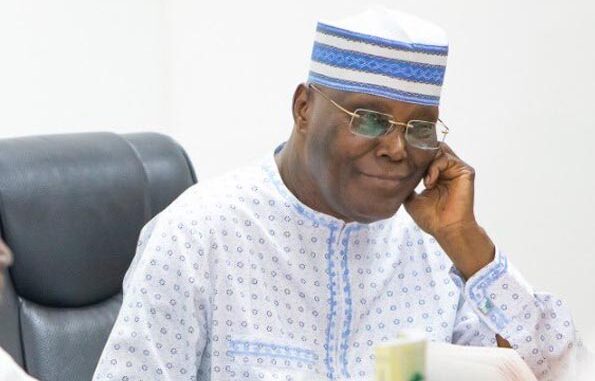
TWELVE days after the Presidential Election Petition Court affirmed the election of President Bola Tinubu, Presidential candidate of the main opposition party, the Peoples Democratic (Party), Atiku Abubakar has headed for the Supreme Court on 35 reasons why the decision of the Court should be nullified.
Recall that the five-member panel of the tribunal had on September 6, upheld the declaration of Tinubu as winner of the February 25 presidential election.
The panel in a unanimous decision held that Atiku as well as other petitioners against the February 25 presidential election were unable to substantiate their allegations against the poll conducted by the Independent National Electoral Commission (INEC).
Specifically, the panel held that the documentary and oral evidences presented before them could not prove claims of irregularities, corrupt practices, non-compliance amongst other claims for which Atiku had asked the court to void Tinubu’s election.
READ ALSO: NAIRA Worsening Rates against USD, GBP, EURO today, September 19, 2023
Dissatisfied, Atiku claiming that the lower tribunal erred in law in affirming the outcome of the February 25 poll, has amongst others asked the Supreme Court to set aside the decision of the tribunal.
Atiku, in addition prayed the apex court to after voiding Tinubu’s election, declare him as the authentic winner of the poll.
Atiku who came second in the poll, is claiming that he and not Tinubu actually won majority of the lawful votes cast at the election, but the electoral umpire however manipulated the process in favour of Tinubu.
In the Notice of Appeal dated September 18, and filed by his lead counsel, Chief Chris Uche, SAN, the former Vice President, on ground seven submitted that, “the lower Court erred in Law when it failed to nullify the Presidential election held on February 25, 2023 on the ground of noncompliance with the Electoral Act 2022 when by evidence before the Court, the 1st Respondent (INEC) conducted the election based on very grave and gross misrepresentation contrary to the principles of the Electoral Act 2022, based on the “doctrine of legitimate expectation”.
While pointing out that the Electoral Act 2022, made the use of Bi-modal Verification Accreditation System (BVAS) and INEC’s Results Viewing (IReV) portals mandatory in the conduct of the 2023 general election, adding that, INEC through its Chairman, Professor Yakubu Mahmoud, publicly gave guarantees, undertakings, clear and unambiguous representations to candidates and political parties, that polling units results were mandatorily required to be electronically transmitted or transferred directly by the Presiding Officers, he argued that, “there was no evidence before the lower Court that the 1st Respondent altered its aforesaid Guidelines and Regulations to remove the said requirement of electronic transmission of the results of the election directly from the polling units to the 1st Respondent’s Collation System”.
READ ALSO: JUST IN: TINUBU approves appointment of 18 Aides for Vice-President’s Office (SEE FULL LIST)
It is the submission of Atiku that, INEC “conducted the said Presidential Election based on the gross misrepresentation to the Appellants and the general voting public that the Presiding Officers were going to electronically transmit the results of the said election directly from the polling units to the 1st Respondent’s Collation System.
He added that, “Contrary to the above unambiguous representations, undertakings and guarantees, the 1st Respondent neither deployed the electronic transmission of election results nor the electronic collation system in the said election, sabotaging the ra/son d’etre for the enactment of the new Electoral Act 2022 and the introduction of the technological innovations.
“Rather than hold the 1st Respondent (INEC) as a public institution accountable to the representations that it made pursuant to its Statutory and constitutional duties which created legitimate expectation on the part of the Appellant’s, the lower court wrongly exonerated the 1st Respondent of any responsibility by holding that the use of the technological innovations to guarantee transparency was not mandatory”.
It was the appellant’s further position that the February 25 poll was “conducted based on very grave and gross misrepresentation and was therefore oppressive to the Appellants and thus not free and fair, and not in accordance with the principles of the Electoral Act 2022, and not protected by the presumption of regularity, as well as the preamble and the fundamental objectives and directive principles of State policy of the Constitution of the Federal Republic of Nigeria 1999 (as amended) adopted by the lower court.
READ ALSO: HUMAN Beings Are Wicked By DELE OLAWANLE (WRITES ON CONTROVERSY ON WHO SUCCEEDS ODUKOYA)
“The grave misrepresentation negated the legal presumption of Official regularity in favour of the 1st Respondent.”

Leave a Reply